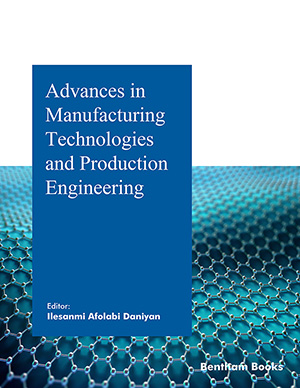[2]
Chi RN, Hu YM, Hu ZX. Real-time trajectory tracking of nonholonomic mobile robot based on decoupling control techniques. Robot 2001; 23(3): 256-60.
[5]
Duan YB, Gao BK, Liu CS, Xu JJ. Decoupling control
method and device based on nonlinear MIMO system CN103399487. (2013).
[6]
Zhu YQ, Ru JT, Jin W, Li YY. Construction method of AC
hybrid magnetic bearing decoupling controller CN103486134. (2013).
[7]
Jiang HB, Chen L, Sun XD, Wang SH, Yin CF, Li K. Construction method of generalized inverse controller for fuzzy
neural network of chassis nonlinear system CN104049536. (2014).
[8]
Sun XD, Chen LJ, Hao B, Yang ZB, Li K. Radial active
magnetic bearing controller and construction method CN103425052. (2013).
[9]
Ye BS, Xiong S, Guo XJ, Tang XQ, Song B, Shen YQ. Motion control method for decoupled six-degree-of-freedom industrial
robot CN102785248. (2012).
[12]
Zhuang M, Yu ZW, Gong DP. Xu Ml, Dai ZD. Gait planning and simulation of quadruped robot with hydraulic drive based on ADAMS. Mach Des Manu 2012; 7: 100-2.
[13]
Enoch AM. Robot leg US20180170466. (2018).
[14]
Shao JP, Zhang YH, Sun GT. A method for rigid support
phase control of a hydraulic quadruped robot with one leg CN20181117810. (2018).
[15]
Lai CB. Hydraulic drive quadruped robot CN206749957. (2017).
[16]
Li YB, Hua ZS, Hao YZ, Rong XW, Tian GH, Li B. Variable topological structure's quadruped robot mechanism CN206704341. (2017).
[17]
Ma ZL, Zhang PQ, Liu YC, Li R J, Wang JM. Bionic
climbing quadruped robot CN105235769. (2017).
[18]
Ma ZL, Zhang PQ, Liu YC, Li QY, Feng S, Wang JM. Dog-like quadruped robot CN105109575. (2017).
[19]
Ding LH, Wang RX, Feng HS, Li J. Brief analysis of a BigDog quadruped robot. Chin J Constr Mach 2012; 23(5): 505-14.
[20]
Jackowski ZJ, Khripin A, Berard S, Rizzi AA. Robotic hydraulic
system US20180106276. (2018).
[21]
Jackowski ZJ, Khripin AY, Rizzi AA. Hydraulic pressure
variation in a legged robot US20190063468. (2019).
[22]
Jackowski ZJ, Rogers K, Young A. A Motor and controller integration
for a legged robot US20180169868. (2018).
[23]
Kong XD, Yu B, Quan LX, Zhai FG, Zhang W, Zhang YT. High integration hydraulic driving unit structure CN103233932. (2015).
[25]
Takagi Y, Tanaka C, Watabe T, Kaneko H, Kanazawa M. Control device for mobile robot US20170183047. (2017).
[26]
Murphy M, Saunders JA, Potter SD. Discretized valve state
control for multi-level hydraulic systems US20170191505. (2017).
[27]
Saunders JA, Hansen M, Komsta J. Integrated valve for a
legged robot US20170219106. (2017).
[29]
Shao JP, Liu MM, Sun GT. Hydraulic quadruped robot
power mechanism load matching method CN108897318. (2018).
[30]
Zhang AD, Sun CM, Lin J. Electric drive quadruped robot
that can adapt to high bearing force of complicated rugged topography CN207683655. (2018).
[31]
Chen DL, Wang H, Liu Q. Bionic quadruped robot with
spine joints and elastic legs CN203780644. (2014).
[32]
Li YB, Chai H, Zhang H, Zhang GT, Ma XL. Distributed
type control system of hydraulic quadruped robot and control
method CN103279113. (2015).
[33]
Swilling B, Whitman E, Berard S, Rizzi AA, Khripin AY, Fay GC. Achieving a target gait behavior in a legged robot US20190054965. (2019).
[34]
Jackowski ZJ, Young A. Transmission with integrated overload
protection for a legged robot US20180172080. (2018).
[36]
Shu H, Zhang J. Dual-capacity liquid level control system based
on PID neural network CN206563911. (2017).
[37]
Chen F, Yao AB. Neural network calibration mechanism US20180285734. (2018).
[38]
Chen YK, Yang SW, Ndiour IJ, et al. Multi-domain convolutional neural
network US20190042870. (2019).
[39]
Li YJ, Jiang H, Zhang CG, Yue SC, Yang M. Phase angle
amplitude PID adaptive method based on BP neural network
for three-dimensional magnetic property measurement CN109034390. (2018).
[40]
Zhang Y, Fang LC, Huang C, Chen Z. Temperature control
method of dynamically predicting PID based on RBF neural
network CN108958020. (2018).
[42]
Li SH, Fairbank M, Fu XG, Wunsch D, Alonso E. Systems,
methods and devices for vector control of permanent magnet synchronous
machines using artificial neural networks US20150039545. (2015).
[43]
Driscoll JJ, Kesse ML, Robel WJ, Jayachandran A. Nox control using a neural network US20070251218. (2007).
[44]
Han HG, Liu Z. Dissolved oxygen model prediction control
method based on adaptive fuzzy neural network CN108563118. (2018).
[45]
Campos J, Lewis FL. Backlash compensation with filtered prediction
in discrete time nonlinear systems by dynamic inversion using
neural networks US20040015933. (2004).
[47]
Xu GH, Zhu YP, Zhang XL, Xie YJ, Yang G, Wang J. Intelligent tracking vehicle based on BP neural network PID control
device CN205229800. (2016).
[48]
Zheng S, Lu DX, Chen YB, et al. Control method for boiler drum water level based
on fuzzy neural network PID control CN103968367. (2014).
[49]
Yehezkel Rohekar RY, Koren G, Nisimov S, Novik G. Efficient
learning and using of topologies of neural networks in machine
learning US20180322385. (2018).
[50]
Drees KH. Building management system with augmented deep
learning using combined regression and artificial neural network
modeling US20190041811. (2019).
[51]
Jiang YB, Qing CD. Air-conditioner control method based on
neural network CN108895618. (2018).
[52]
Liu XL, Li Z. Steering engine electric loading system intelligent
control method based on cerebellar neural network CN108828952. (2018).
[54]
Izzat IH, Comer ML, Nijim YW. Dynamic rate adaptation
using neural networks for transmitting video data US20050025053. (2005).
[55]
Klimasauskas CC, Guiver JP. Hybrid linear-neural network
process control US20010025232. (2001).
[56]
Morishige K. Heat exchange system, controller and construction
method of neural network JP2018105571. (2018).
[57]
Wan JQ, Huang MZ, Ma YW, Wang Y. Method and system
for wastewater treatment based on dissolved oxygen control by
fuzzy neural network US20140052422. (2014).
[58]
Jacobson EE. Engine control system using a cascaded neural
network US20030217021. (2003).
[59]
Cho CN, Kim HJ, Song YH. PID System and method for
tuning the gains of PID controller using neural network KR20180032453. (2018).
[60]
Zemouri R, Gouriveau R, Paul CP. Combining a recurrent neural network and a PID controller for prognostic purpose: A way to improve the accuracy of predictions. WSEAS T Syst Contr 2010; 5(5): 353-71.
[61]
Liu GH, Wang ZX, Mei CL, Yu S, Ding YH. Feedforward
decoupling method of permanent magnet synchronous motor based
on neural network online learning CN103219936. (2013).
[62]
Chen YK, Yang SW, Ndiour IJ, et al. Multi-domain cascade convolutional
neural network US20190042867. (2019).
[63]
Turney RD. Predictive building control sysytem with neural network
based constraint generation US20180306459. (2018).
[64]
Xu B, Wang X. Aircraft global finite time neural network
control method based on switching mechanism CN108828957. (2018).
[65]
Chen YH, Liu XY, Shi SY, Guan SY, Xia YH. Greenhouse
irrigation system and method based on neural network
prediction CN108781926. (2018).
[66]
Claessens B, Vrancx P. Methods, controllers and systems for the
control of distribution systems using a neural network architecture US20190019080. (2019).
[67]
Wang CW. Analog turntable control system based on neural
network PID control CN107908101. (2018).
[68]
Nagashima F. Neural network learning device, method, and program US20090132449. (2009).
[70]
Sun XD, Chen L, Li K, Yang ZB, Zhu YQ. Construction
method of neural network generalized inverse decoupling controller
for bearing less asynchronous motor CN102790578. (2012).
[71]
Xia CL, Guo C, Shi TN. Mechanical decoupling control
method of permanent magnet spherical motor based on neural network
identifier CN101369132. (2009).
[72]
Henry S. Using a neural network to optimize procession of user
requests US20190065948. (2019).
[73]
Mellempudi N, Das D. Scaling half-precision floating point tensors
for training deep neural networks US20180322382. (2018).
[74]
Wang J, Deng YM. Intelligent setting method for tea machine
processing control parameters based on RBF neural network CN108719516. (2018).
[75]
Wang XB, Ge S, Meng MR. DNN (Depth Neural Network)
neural network self-adaptive control method based on tendondriven
dexterous hand CN108555914. (2018).
[76]
Fu XG, Li SH. Systems, methods and devices for vector control
of induction machines using artificial neural networks US20160301334. (2016).
[77]
Xu Q, Yang ZP. Heating furnace temperature computer control
method based on process neural network CN107870565. (2018).



















